Home>Garden Essentials>Garden Plants>What Is White Thyme Oil Used For
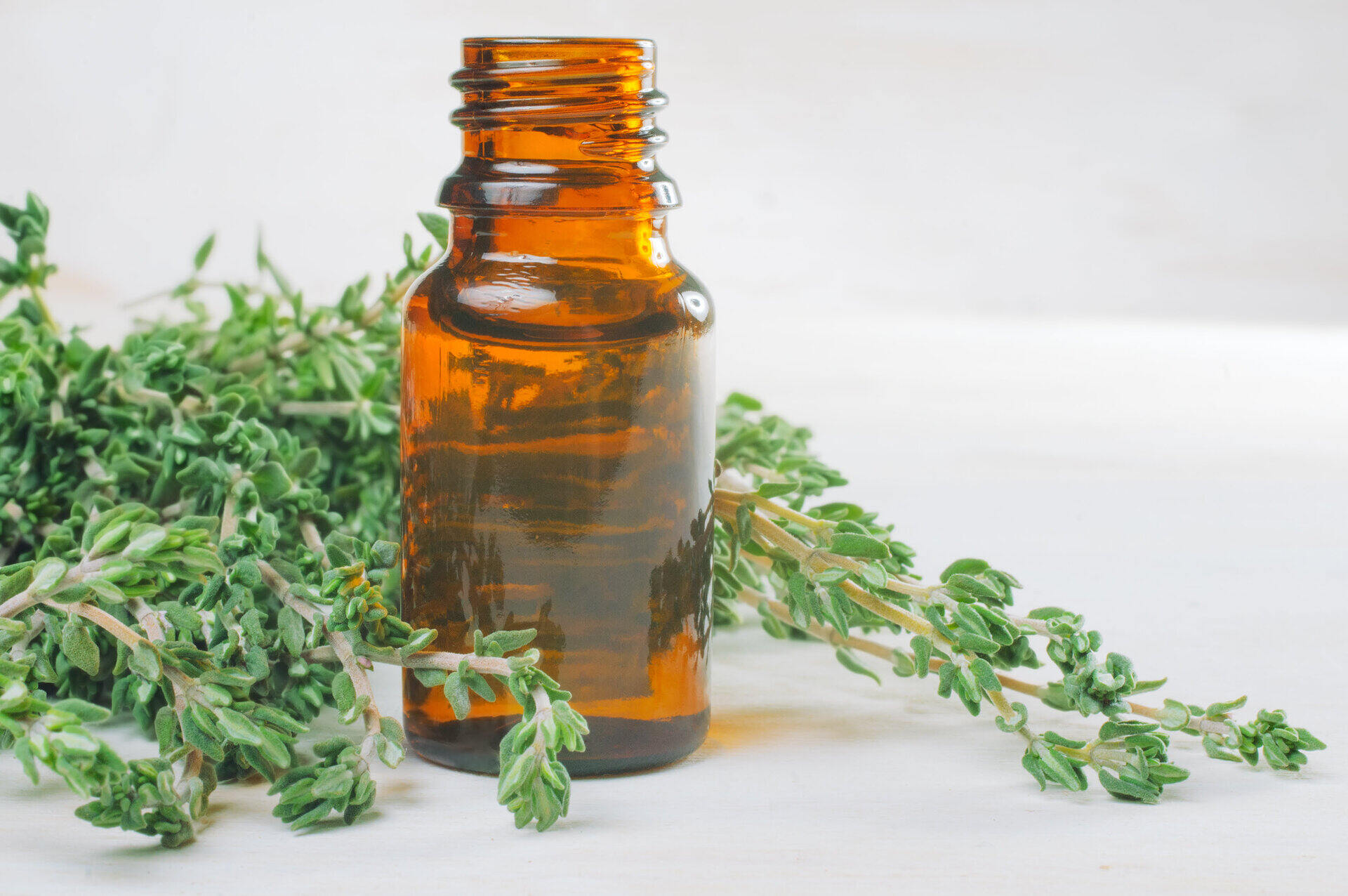

Garden Plants
What Is White Thyme Oil Used For
Modified: October 20, 2024
Discover the many uses of white thyme oil extracted from plants. From aromatherapy to natural cleaning, explore the benefits and applications of this versatile essential oil.
(Many of the links in this article redirect to a specific reviewed product. Your purchase of these products through affiliate links helps to generate commission for Storables.com, at no extra cost. Learn more)
Introduction
White thyme oil, derived from the leaves and flowers of the Thymus vulgaris plant, is a versatile essential oil that has been used for centuries for its various therapeutic benefits. With its distinct aroma and powerful properties, white thyme oil has gained popularity in the world of natural remedies and aromatherapy.
Throughout history, plants have been valued for their medicinal properties, and thyme is no exception. Thyme has been used since ancient times by different cultures including the Egyptians, Greeks, and Romans. Its name is derived from the Greek word “thymon,” which means courage, reflecting the plant’s historical association with bravery and strength.
White thyme oil is extracted through a steam distillation process, which retains the plant’s potent compounds and aromatic qualities. This oil is highly concentrated and should be used with caution. Its main constituents include thymol, carvacrol, and linalool, which contribute to its therapeutic effects.
In this article, we will explore the history, composition, uses, and benefits of white thyme oil. From aromatherapy to skin care and even oral health, white thyme oil offers a wide range of applications for improving overall well-being. However, it is important to note that while white thyme oil can provide numerous benefits, it should be used judiciously, and certain precautions should be taken to ensure safety.
If you’re curious about the potential uses and benefits of white thyme oil or looking for natural remedies to incorporate into your wellness routine, keep reading to discover the many ways this versatile oil can contribute to your health and happiness. Whether you’re seeking respiratory relief, clearer skin, or a boost to your immune system, white thyme oil may just be the herbal remedy you’ve been searching for. So, let’s dive in and explore the wonders of white thyme oil together.
Key Takeaways:
- White thyme oil offers versatile benefits, from promoting relaxation to supporting respiratory health and skincare. Dilute and use responsibly for a natural wellness boost.
- Incorporate white thyme oil into your routine for its calming aroma and potential therapeutic effects. Remember to dilute and use with caution for optimal safety.
Read more: What Is Thyme Oil Used For
History and Origins of White Thyme Oil
The use of thyme as a medicinal herb dates back thousands of years. The ancient Egyptians were known to have used thyme in their embalming rituals, recognizing its potent antimicrobial properties. The ancient Greeks considered thyme to be a symbol of courage and used it in their baths and burned it as incense to purify the air. The Romans, on the other hand, associated thyme with strength and used it as a remedy for various ailments.
White thyme oil is derived from the Thymus vulgaris plant, a perennial herb native to the Mediterranean region. This aromatic herb has small, pale flowers and leaves that exude a strong, herbal scent. The process of extracting essential oil from thyme involves steam distillation, which captures the plant’s volatile compounds and concentrates them into the potent white thyme oil.
Thyme has been traditionally used in folk medicine for its antiseptic, expectorant, and calming properties. In the 16th century, it became a popular herbal remedy in Europe for treating respiratory infections and digestive issues. During World War I, thyme oil was used as an antiseptic to disinfect wounds and prevent infection.
The use of thyme oil for aromatherapy gained prominence in the 20th century with the rise of essential oils as a natural healing modality. Aromatherapists recognized the therapeutic benefits of thyme oil, particularly white thyme oil, which is known for its strong antimicrobial properties. Today, white thyme oil is used both in traditional medicine and in the modern practice of aromatherapy.
White thyme oil is extensively used in the perfume and fragrance industry due to its intense aroma. Its earthy, herbaceous scent is often described as invigorating and stimulating. It is a popular ingredient in soaps, lotions, and candles, adding a refreshing and uplifting element to these products.
As with any herbal remedy, the popularity and use of white thyme oil have evolved over time. Today, it continues to be valued for its therapeutic properties and versatility in various natural remedies. From its ancient roots in Egyptian embalming to its modern applications in aromatherapy, white thyme oil has stood the test of time as a valuable herbal remedy.
Composition of White Thyme Oil
White thyme oil is a potent essential oil that contains a variety of chemical compounds responsible for its therapeutic properties. These compounds give white thyme oil its distinct aroma and contribute to its wide range of uses.
One of the main constituents of white thyme oil is thymol. Thymol is a powerful antimicrobial compound with strong antiseptic and antibacterial properties. It is known for its ability to inhibit the growth of bacteria, fungi, and viruses, making it a valuable ingredient in natural remedies for respiratory and skin conditions.
Another significant compound found in white thyme oil is carvacrol. Carvacrol is known for its antimicrobial and antioxidant properties. It is believed to have immune-boosting effects, helping to support the body’s natural defense mechanisms and promoting overall well-being.
Linalool is also present in white thyme oil and contributes to its pleasant aroma. Linalool is a terpene compound that is known for its calming and relaxing properties. It can help reduce stress and anxiety and promote a sense of calm and tranquility.
Other compounds found in white thyme oil include terpinene, cineol, and camphene. Each of these compounds adds to the oil’s unique properties and contributes to its therapeutic benefits.
It’s worth mentioning that white thyme oil is highly concentrated and should be used with caution. Due to its high content of thymol, it can cause skin irritation or sensitization if used in its undiluted form. It is always recommended to dilute white thyme oil in a carrier oil, such as coconut oil or almond oil, before topical application.
The composition of white thyme oil can vary depending on factors such as the plant’s growing conditions, the time of harvest, and the extraction method used. It is important to source high-quality, pure white thyme oil from reputable suppliers to ensure its effectiveness and safety.
Understanding the composition of white thyme oil allows us to appreciate its therapeutic properties and potential applications. The combination of thymol, carvacrol, linalool, and other compounds makes white thyme oil a valuable addition to your natural remedy toolkit. From its antimicrobial effects to its soothing aroma, white thyme oil offers a multitude of benefits for supporting overall health and well-being.
Uses and Benefits of White Thyme Oil
White thyme oil offers a wide range of uses and benefits due to its powerful antimicrobial, anti-inflammatory, and antioxidant properties. From aromatherapy to skin care and even oral health, this versatile essential oil can enhance your well-being in numerous ways.
Here are some of the key uses and benefits of white thyme oil:
1. Aromatherapy: Inhaling the aroma of white thyme oil through diffusers or inhalers is a popular way to experience its therapeutic benefits. The oil’s invigorating scent can promote mental clarity, boost energy levels, and uplift mood. It can also help alleviate stress, anxiety, and feelings of fatigue.
2. Respiratory Health: White thyme oil is known for its expectorant properties, which make it beneficial for respiratory conditions such as coughs, colds, and congestion. It can help loosen mucus, relieve coughing, and clear the airways, making it easier to breathe.
3. Skin Conditions: Due to its antimicrobial and anti-inflammatory properties, white thyme oil can be used to address various skin concerns. It can help combat acne-causing bacteria, reduce inflammation associated with conditions like eczema and psoriasis, and promote overall skin health.
4. Oral Health: White thyme oil can be added to natural toothpaste or used as a mouthwash to maintain good oral hygiene. Its antimicrobial properties help combat bacteria that cause dental plaque, gum disease, and bad breath.
5. Natural Insect Repellent: The strong aroma of white thyme oil acts as a natural insect repellent, keeping mosquitoes, ticks, and other bugs at bay. You can create your own repellent spray by diluting white thyme oil with water and a carrier oil.
6. Hair Care: White thyme oil can be beneficial for maintaining a healthy scalp and promoting hair growth. It helps purify the scalp, reduce dandruff, and improve circulation, which encourages healthier hair follicles.
7. Boosting Immune System: The immune-boosting properties of white thyme oil make it a valuable ally in supporting overall immune health. Regular use of the oil can help strengthen your body’s defenses and protect against common infections.
8. Improved Digestion: White thyme oil can aid in digestion by promoting proper secretion of digestive juices and enzymes. It can help alleviate digestive issues like bloating, gas, and indigestion.
9. Stress Relief and Relaxation: The calming properties of white thyme oil make it a useful tool for relaxation and stress relief. By diffusing the oil or using it in massages, it can help reduce feelings of tension, anxiety, and promote a peaceful state of mind.
It is important to note that while white thyme oil offers various benefits, it should be used with caution. It is potent and should be diluted before topical application. It is also not recommended for use during pregnancy or by individuals with certain health conditions. If you are considering using white thyme oil for any specific purpose, it is advisable to consult a healthcare professional or aromatherapist for personalized guidance.
Incorporating white thyme oil into your daily routine can provide a natural and effective way to support your overall well-being. Whether you’re seeking respiratory relief, improved skin health, or a natural insect repellent, this versatile oil can be a valuable addition to your natural remedy collection.
Aromatherapy
Aromatherapy is a holistic healing practice that utilizes the power of essential oils to promote physical, emotional, and mental well-being. White thyme oil, with its invigorating and stimulating aroma, is a popular choice for aromatherapy enthusiasts seeking an energy boost or a mood-enhancing experience.
When inhaled, the scent of white thyme oil can have a profound impact on our limbic system – the part of the brain responsible for emotions, memories, and hormonal responses. The aroma of white thyme oil has been known to uplift mood, increase mental clarity, and promote a sense of vitality and focus.
To enjoy the benefits of white thyme oil through aromatherapy, there are a few methods you can try:
1. Diffusion: Add a few drops of white thyme oil to an essential oil diffuser filled with water. The diffuser releases tiny particles of the oil into the air, allowing you to inhale and experience its aromatic benefits. This is a popular method for promoting a positive atmosphere in your living space or workspace.
2. Inhalation: Place a drop or two of white thyme oil onto a tissue or handkerchief and inhale deeply. This portable and convenient method is great for quick energizing or mood-boosting sessions on the go.
3. Steam Inhalation: Add a few drops of white thyme oil to a bowl of steaming hot water. Cover your head with a towel to create a steam tent, and lean over the bowl, inhaling deeply. This method is particularly beneficial for respiratory support and can provide relief from congestion and respiratory infections.
4. Aromatherapy Jewelry: Use diffuser jewelry such as bracelets, necklaces, or pendants made specifically for essential oils. Simply apply a drop or two of white thyme oil onto the jewelry and enjoy the aroma throughout the day, carrying the energizing benefits with you wherever you go.
The refreshing and stimulating aroma of white thyme oil can help combat fatigue, improve focus and concentration, and alleviate stress and anxiety. It can be especially useful during moments of mental exhaustion or low energy levels, acting as a natural pick-me-up.
When using white thyme oil in aromatherapy, it’s important to ensure proper ventilation in the room and avoid prolonged exposure to the scent. Additionally, individuals with respiratory conditions or sensitivities may want to use a lower concentration or seek guidance from an aromatherapist.
Harness the power of white thyme oil in your aromatherapy practice to create a positive and revitalizing ambiance. Whether you’re looking to boost productivity, uplift your mood, or simply create a refreshing atmosphere, incorporating white thyme oil into your aromatherapy routine can help you achieve a sense of well-being and balance.
Read more: What Is Red Thyme Essential Oil Used For
Respiratory Health
White thyme oil is renowned for its benefits in promoting respiratory health. Its expectorant and antiseptic properties make it an excellent natural remedy for various respiratory conditions, including coughs, colds, congestion, and bronchitis.
Here’s how white thyme oil can support respiratory health:
1. Expectorant Properties: White thyme oil helps to loosen and expel mucus and phlegm from the respiratory tract. It can provide relief from a persistent cough and congested airways, making it easier to breathe. Its expectorant properties help to clear out the respiratory system and promote better functioning.
2. Antimicrobial Effects: White thyme oil contains thymol, a potent compound known for its antimicrobial properties. Thymol helps to combat bacteria, viruses, and fungi that can cause respiratory infections. It acts as a natural defense against common pathogens, helping to prevent and alleviate respiratory illnesses.
3. Decongestant Effects: The inhalation of white thyme oil can help relieve congestion caused by colds and allergies. Its aroma acts as a decongestant, opening up the airways and facilitating easier breathing. It can provide relief from the discomfort associated with blocked sinuses and nasal congestion.
4. Respiratory System Support: White thyme oil supports overall respiratory system health by improving lung function and strengthening the immune system. Its antimicrobial properties help to prevent infections, while its antioxidant effects protect against oxidative stress and inflammation in the lungs.
There are several ways to use white thyme oil for respiratory health:
Aromatherapy Diffusion: Add a few drops of white thyme oil to an essential oil diffuser and inhale the steam. The vapor will help to alleviate congestion and promote clear breathing.
It is important to remember that white thyme oil is highly concentrated and potent. Always dilute it before applying it topically, and if you have sensitive skin, perform a patch test first. If you experience any adverse reactions or discomfort, discontinue use and consult a healthcare professional.
When using white thyme oil for respiratory health, it is advisable to use it as a complementary treatment alongside conventional medical care. If symptoms persist or worsen, consult a healthcare professional for proper diagnosis and treatment.
White thyme oil can be a valuable addition to your natural remedy toolkit when it comes to promoting respiratory health. Its expectorant, antimicrobial, and decongestant properties work together to provide relief from respiratory discomfort and support healthy breathing. Incorporate white thyme oil into your wellness routine to experience the benefits for yourself.
Skin Conditions
White thyme oil is a versatile essential oil that offers numerous benefits for the skin. Its antimicrobial, anti-inflammatory, and antioxidant properties make it a valuable natural remedy for addressing various skin conditions and promoting overall skin health.
Here’s how white thyme oil can benefit your skin:
1. Acne Treatment: White thyme oil possesses powerful antimicrobial properties that can help fight acne-causing bacteria. Applying a diluted solution of white thyme oil to acne-prone areas can help reduce inflammation, calm redness, and promote clearer skin.
2. Eczema and Psoriasis Relief: The anti-inflammatory properties of white thyme oil make it beneficial for soothing skin conditions like eczema and psoriasis. It can help reduce itching, redness, and inflammation associated with these conditions, providing relief and promoting skin healing.
3. Antiseptic Effects: White thyme oil acts as a natural antiseptic, which can be useful for treating minor cuts, wounds, and skin infections. Its antimicrobial properties help disinfect the affected area and prevent the growth of bacteria, reducing the risk of infection.
4. Skin Cleansing: White thyme oil can be added to natural cleansers or toners to enhance their purifying properties. Its antimicrobial effects can help remove dirt, impurities, and excess oil from the skin, leaving it fresh, clean, and free from blemishes.
5. Skin Toning and Tightening: The astringent properties of white thyme oil help in toning and tightening the skin. It can improve skin elasticity, reduce the appearance of fine lines and wrinkles, and promote a more youthful complexion.
6. Soothing Irritated Skin: Whether it’s due to insect bites, rashes, or sunburn, white thyme oil can provide relief for irritated skin. Its anti-inflammatory properties help calm redness, itching, and inflammation, allowing the skin to heal.
To use white thyme oil for skin conditions:
Topical Application: Dilute white thyme oil with a carrier oil such as jojoba, coconut, or almond oil before applying it to the skin. This helps to prevent skin irritation. Gently massage the diluted oil into the affected areas or include it in homemade skincare products.
It is essential to perform a patch test before using white thyme oil on your skin, especially if you have sensitive skin or are prone to allergies. If any irritation occurs, discontinue use and consult a dermatologist.
While white thyme oil offers potential benefits in managing various skin conditions, it is important to remember that everyone’s skin is different. What works for one person may not work for another. If you have any underlying skin conditions or concerns, it is always recommended to consult a dermatologist or skincare professional for personalized advice and treatment options.
Incorporating white thyme oil into your skincare routine can help promote healthier, clearer skin and provide relief for various skin conditions. Its natural properties offer a gentle and effective approach to maintaining radiant and balanced skin.
Oral Health
White thyme oil has long been recognized for its benefits in maintaining good oral health. Its antimicrobial properties make it a valuable natural remedy for promoting oral hygiene, combating bacteria that can lead to dental issues, and freshening breath.
Here’s how white thyme oil can benefit your oral health:
1. Fighting Bacteria: The antimicrobial properties of white thyme oil help to combat the bacteria responsible for dental plaque, gum disease, and cavities. Incorporating white thyme oil into your oral care routine can help reduce the risk of oral infections and promote a healthier mouth.
2. Gum Health: White thyme oil can help improve gum health and prevent gum disease. Its anti-inflammatory properties can reduce gum inflammation and swelling, while its antimicrobial effects assist in fighting off harmful bacteria that can lead to gum infections.
3. Dental Plaque Control: White thyme oil can be used as a natural adjunct to regular brushing and flossing to help control dental plaque. Its antimicrobial actions inhibit the growth and accumulation of bacteria in the mouth, reducing the formation of plaque and tartar.
4. Freshening Breath: The strong and refreshing aroma of white thyme oil can help freshen breath. Its antimicrobial properties target the bacteria responsible for causing bad breath, providing a natural and long-lasting solution to unpleasant oral odor.
To use white thyme oil for oral health:
Oil Pulling: Add a few drops of white thyme oil to a tablespoon of coconut oil. Swish the mixture around in your mouth for around 10-15 minutes, pulling it through your teeth. Spit the mixture out and rinse your mouth thoroughly. Oil pulling helps to remove bacteria, plaque, and toxins from the mouth, promoting oral hygiene.
Mouthwash: Dilute a few drops of white thyme oil in a cup of water and use it as a mouthwash. Gargle with the solution for 30-60 seconds, ensuring it reaches all areas of your mouth. This can be done once or twice a day to help maintain a clean mouth and fresh breath.
It is important to note that while white thyme oil can provide oral health benefits, it should always be used in moderation and with proper dilution. Swallowing large amounts can be harmful, so be cautious when using it orally and do not use it as a replacement for professional dental care.
Incorporating white thyme oil into your oral care routine can help support healthy gums, prevent dental plaque, and contribute to fresher breath. However, it is always recommended to consult a dentist or oral health professional for personalized recommendations and advice tailored to your specific oral health needs. Regular dental check-ups and professional cleanings are still essential for maintaining optimal oral hygiene.
White thyme oil is commonly used for its antiseptic and antibacterial properties. It can be used topically to help treat acne, wounds, and skin infections. Always dilute with a carrier oil before applying to the skin.
Natural Insect Repellent
White thyme oil can serve as a natural alternative to chemical-laden insect repellents. Its strong aroma acts as a deterrent to various insects, making it an effective and natural way to keep pesky bugs at bay.
Here’s how white thyme oil can be used as a natural insect repellent:
1. Mosquitoes and Flies: Mosquitoes and flies are common nuisances, particularly during outdoor activities. White thyme oil can help repel these insects when applied topically or used in a diffuser. It acts as an effective deterrent due to its strong aroma, making it less likely for mosquitoes and flies to land on the skin or enter the immediate area.
2. Ticks and Fleas: White thyme oil can also be effective in repelling ticks and fleas, which can be particularly troublesome for pets and outdoor enthusiasts. A properly diluted solution of white thyme oil can be sprayed onto clothing, skin, or pet bedding to discourage ticks and fleas from coming near.
To create a natural insect repellent with white thyme oil:
DIY Spray: Dilute 10-15 drops of white thyme oil in a carrier oil such as coconut oil or almond oil. You can also add a few drops of other essential oils known to repel insects, such as citronella or lemongrass oil. Transfer the mixture into a spray bottle and use it to apply a thin layer onto exposed skin or clothing.
It’s important to remember that white thyme oil is highly concentrated and should always be diluted before topical use. Additionally, it’s recommended to perform a patch test on a small area of the skin to ensure no adverse reactions occur.
While white thyme oil can effectively repel insects, it may not offer the same level of protection as chemical-based repellents in highly infested areas or against certain species of insects. Regular reapplication may be necessary to maintain its efficacy.
As with any insect repellent, it’s essential to follow general precautions like avoiding contact with eyes, open wounds, or sensitive areas. Also, children, pregnant individuals, and those with skin sensitivities should exercise caution when using white thyme oil for insect repellent purposes.
Incorporating white thyme oil into your outdoor routine can provide you with a natural and effective way to repel insects and enjoy your time outdoors without the annoyance of bites or stings. It offers a safer alternative to chemical-based insect repellents, allowing you to protect yourself and your family while minimizing exposure to potentially harmful substances.
Read more: What Is Thyme Used For
Hair Care
White thyme oil can be a beneficial addition to your hair care routine. Its antimicrobial and stimulating properties can help promote a healthier scalp, strengthen hair follicles, and improve overall hair vitality.
Here’s how white thyme oil can benefit your hair:
1. Scalp Health: White thyme oil possesses antimicrobial properties that can help address scalp conditions such as dandruff and itchiness. Its gentle yet effective action can help reduce fungal or bacterial growth on the scalp, promoting a healthier environment for hair growth.
2. Dandruff Treatment: Dandruff is a common scalp condition characterized by flaking and itching. The antifungal and anti-inflammatory properties of white thyme oil make it an excellent natural remedy for dandruff. It can help reduce the presence of yeast-like fungi responsible for dandruff, leading to a healthier scalp and reduced flaking.
3. Hair Growth: White thyme oil can stimulate hair growth by improving blood circulation to the scalp. Increased blood flow provides essential nutrients to the hair follicles, promoting stronger and healthier hair growth. Regular use of white thyme oil can help improve hair thickness and fullness.
4. Hair Strength and Thickness: White thyme oil can help strengthen hair strands and improve hair thickness. Its stimulating properties can invigorate the hair follicles, leading to stronger roots and reduced hair breakage. This can result in thicker, more voluminous hair over time.
5. Scalp Stimulation: Massaging white thyme oil into the scalp can provide a soothing and invigorating experience. It helps stimulate the hair follicles and promotes relaxation, reducing stress and tension in the scalp.
To incorporate white thyme oil into your hair care routine:
Scalp Massage: Dilute several drops of white thyme oil in a carrier oil such as coconut, olive, or jojoba oil. Gently massage the diluted oil into your scalp using circular motions. Leave it on for 15-30 minutes before shampooing your hair as usual. This massage can help improve scalp health and promote hair growth.
Shampoo or Conditioner Additive: You can add a few drops of white thyme oil to your favorite shampoo or conditioner for an extra boost. This can help enhance the cleansing and revitalizing effects, providing additional benefits for your scalp and hair.
It’s important to note that white thyme oil is highly concentrated and should be used with caution. Always dilute it before applying it to the scalp or hair. Perform a patch test before use to ensure you are not allergic to the oil or experiencing any adverse reactions.
Incorporating white thyme oil into your hair care routine can improve the health and appearance of your scalp and hair. Whether you’re looking to address specific scalp issues, stimulate hair growth, or enhance the overall condition of your hair, white thyme oil offers a natural and effective option. Enjoy the benefits of this aromatic oil and unlock the potential for healthier, more vibrant hair.
Boosting Immune System
White thyme oil can be a valuable tool in supporting and boosting the immune system. Its potent antimicrobial, antioxidant, and immune-stimulating properties make it an excellent natural remedy for promoting overall immune health.
Here’s how white thyme oil can benefit your immune system:
1. Antimicrobial Properties: White thyme oil contains thymol, which exhibits powerful antimicrobial effects. It can help combat bacteria, viruses, fungi, and parasites that can weaken the immune system and cause illnesses. Incorporating white thyme oil into your routine can provide an additional line of defense against harmful pathogens.
2. Antioxidant Effects: White thyme oil is rich in antioxidants that help protect the body from oxidative stress and free radicals. These harmful molecules can weaken the immune system and lead to various health issues. The antioxidants in white thyme oil neutralize free radicals, reducing their damaging effects and supporting overall immune function.
3. Immune-Stimulating Properties: White thyme oil can stimulate the production and activity of white blood cells, which are crucial for a strong immune response. Enhanced white blood cell function helps the body identify and eliminate foreign invaders, boosting the overall immune system’s effectiveness.
4. Respiratory Support: The expectorant properties of white thyme oil can aid in respiratory health, helping to relieve congestion, coughs, and cold symptoms. By supporting a healthy respiratory system, white thyme oil indirectly contributes to maintaining a strong immune system.
5. Stress Reduction: High levels of stress can weaken the immune system. White thyme oil has calming properties that can help reduce stress and anxiety. By managing stress levels, it allows the immune system to function optimally, increasing the body’s ability to fight off infections and diseases.
To incorporate white thyme oil for immune system support:
Diffusion: Use a diffuser to disperse the aroma of white thyme oil throughout your home or workspace. Inhaling the oil can help support respiratory health, reduce stress, and promote an overall sense of well-being.
Massage: Dilute white thyme oil with a carrier oil, such as coconut or jojoba oil, and use it for a gentle massage. This can help promote relaxation, reduce stress, and stimulate lymphatic circulation, which aids in immune system function.
While white thyme oil can provide immune-boosting benefits, it should not be used as a substitute for medical advice or treatment. It is essential to maintain a balanced and healthy lifestyle that includes a nutritious diet, regular exercise, adequate rest, and proper hygiene practices to support a robust immune system.
If you have any underlying health conditions or concerns, it’s always advisable to consult with a healthcare professional before using white thyme oil or any other natural remedies for immune support.
Incorporating white thyme oil into your wellness routine can be a valuable addition to supporting your immune system. Its antimicrobial, antioxidant, and immune-stimulating properties can help fortify your body’s natural defenses and promote overall well-being. Boost your immune system naturally and enjoy the benefits of a strengthened immune response with white thyme oil.
Improved Digestion
White thyme oil can be beneficial for promoting healthy digestion and addressing digestive issues. Its properties include antispasmodic and carminative effects, which can help alleviate symptoms such as bloating, gas, indigestion, and discomfort.
Here’s how white thyme oil can contribute to improved digestion:
1. Stimulation of Digestive System: White thyme oil can help stimulate the digestive system by promoting the secretion of digestive enzymes and juices. This aids in the breakdown and absorption of nutrients, ensuring efficient digestion.
2. Relieving Digestive Discomfort: The antispasmodic properties of white thyme oil can help relax the muscles of the digestive tract, reducing cramping and abdominal pain. It can help alleviate discomfort associated with conditions like irritable bowel syndrome (IBS) and indigestion.
3. Reduction of Bloating and Gas: White thyme oil can help reduce bloating and excess gas. It aids in expelling gas from the digestive system, relieving discomfort and promoting a flatter stomach.
4. Soothing Properties: White thyme oil possesses soothing properties that can help calm inflammation in the gastrointestinal tract. It may reduce irritation and inflammation associated with conditions like gastritis and acid reflux.
To use white thyme oil for improved digestion:
Topical Application: Dilute a few drops of white thyme oil in a carrier oil, such as coconut or olive oil. Gently massage the diluted oil onto your abdomen in a clockwise motion. This can help relieve bloating, gas, and indigestion.
Aromatherapy: Inhalation of white thyme oil through a diffuser or inhaler can help calm the mind and relax the body, promoting optimal digestion. The relaxing aroma can help reduce stress, which can positively impact digestion.
It’s important to note that while white thyme oil may provide relief for digestive issues, it should not replace medical advice or treatment for underlying gastrointestinal conditions. If you have chronic or severe digestive problems, it’s important to consult with a healthcare professional for proper diagnosis and guidance.
Incorporating white thyme oil into your digestive health routine can help promote more comfortable and efficient digestion. Its antispasmodic and soothing effects can provide relief from common digestive discomforts, supporting overall digestive well-being. Remember to always use white thyme oil in moderation and observe any reactions or sensitivities that may occur.
Stress Relief and Relaxation
White thyme oil can be a valuable tool for stress relief and promoting a sense of relaxation. Its aroma and therapeutic properties can help calm the mind, reduce anxiety, and create a tranquil environment.
Here’s how white thyme oil can aid in stress relief and relaxation:
1. Calming Aroma: The aroma of white thyme oil has a soothing and grounding effect on the mind and body. Inhaling the oil can help reduce feelings of stress and anxiety, promoting a sense of calm and relaxation.
2. Stress Reduction: White thyme oil has been shown to have calming properties that help reduce stress levels. It can help alleviate feelings of tension, nervousness, and unease, allowing you to unwind and relax more easily.
3. Mood Enhancement: The invigorating and uplifting scent of white thyme oil can help improve mood and boost overall well-being. Its aroma promotes a positive and energizing atmosphere, counteracting feelings of fatigue or low mood.
4. Sleep Aid: White thyme oil can be beneficial for those struggling with sleep issues caused by stress or anxiety. Its calming properties can help induce a sense of tranquility, promoting a restful and deep sleep.
To utilize white thyme oil for stress relief and relaxation:
Aromatherapy Diffusion: Add a few drops of white thyme oil to an essential oil diffuser and let the aroma fill the room. The gentle diffusion of its scent can create a calming environment, helping to reduce stress and promote relaxation.
Topical Application: Dilute white thyme oil in a carrier oil, such as jojoba or almond oil, and apply it to your wrists, temples, or back of the neck. Gently massage the diluted oil into your skin to experience its calming effects.
Bath Soak: Add a few drops of white thyme oil to a warm bath and soak for 15-20 minutes. The aromatic properties of the oil will help relax your mind and body, creating a spa-like experience and promoting overall relaxation.
As with any essential oil, it’s essential to use white thyme oil in moderation and be aware of any sensitivities or allergies. Always dilute it properly before topical use, and if any adverse reactions occur, discontinue use and seek medical advice.
While white thyme oil can aid in stress relief and relaxation, it should not be used as a substitute for professional help with severe anxiety or stressful situations. If you are experiencing chronic stress or anxiety, it’s important to consult a healthcare professional for appropriate guidance and support.
Incorporating white thyme oil into your self-care routine can offer a natural and effective way to find calm and relaxation amidst the challenges of daily life. Allow its invigorating scent to soothe your senses and melt away stress, promoting a more balanced and peaceful state of mind.
Read more: What Is Thyme Seasoning Used For
Safety Precautions and Side Effects of White Thyme Oil
While white thyme oil offers numerous benefits, it is crucial to use it with caution and follow proper safety guidelines. Being highly concentrated, it can cause skin irritation, sensitization, or other adverse reactions if used improperly. Here are some important safety precautions to keep in mind:
1. Dilution: White thyme oil should always be diluted before topical application. Undiluted use can cause skin irritation or sensitization. Mix a few drops of white thyme oil with a carrier oil such as coconut, almond, or jojoba oil before applying it to the skin.
2. Patch Test: Before using white thyme oil topically, perform a patch test. Apply a small diluted amount of oil to a small area of skin and wait for 24 hours. If any redness, itching, or irritation occurs, discontinue use.
3. Sensitivity: Some individuals may be more sensitive to essential oils, including white thyme oil. If you have sensitive skin, asthma, or other respiratory conditions, it is advisable to consult a healthcare professional before using white thyme oil.
4. Avoiding Eye Contact: Take care to avoid contact with the eyes when using white thyme oil. If accidental contact occurs, immediately flush the eyes with clean water and seek medical advice if any discomfort persists.
5. Not for Internal Use: White thyme oil should not be ingested. It is meant for external use only. Internal consumption can have toxic effects and should be avoided.
6. Pregnancy and Children: Pregnant or breastfeeding individuals should avoid using white thyme oil without consulting their healthcare provider. Likewise, it is advisable to keep white thyme oil out of reach of children and consult a pediatrician before using it on or around them.
While white thyme oil is generally safe to use when used properly, some individuals may experience side effects or adverse reactions. These can include skin irritation, allergic reactions, or respiratory sensitization. If any of these symptoms occur, discontinue use and seek medical advice if needed.
It is important to note that essential oils, including white thyme oil, are not a substitute for professional medical advice or treatment. If you have any underlying health conditions or concerns, or if you are on any medications, consult a healthcare professional before using white thyme oil.
When purchasing white thyme oil, ensure that it is of high quality and sourced from a reputable supplier. This helps ensure the oil’s purity and efficacy.
By following these safety precautions and using white thyme oil responsibly, you can minimize the risk of adverse reactions and enjoy its benefits safely. If you have any doubts or concerns, it is always best to seek guidance from a qualified aromatherapist or healthcare professional.
How to Use White Thyme Oil
White thyme oil is a versatile essential oil that can be used in various ways to enjoy its benefits. However, it is crucial to use it properly and in moderation to ensure safety and efficacy. Here are some common methods of using white thyme oil:
1. Aromatherapy: Add 3-5 drops of white thyme oil to an essential oil diffuser or a diffuser necklace. Inhale the aroma to promote relaxation, relieve stress, and uplift your mood. This method is particularly effective for creating a calming atmosphere in your home or workspace.
2. Topical Application: Dilute white thyme oil with a carrier oil, such as coconut, almond, or jojoba oil, before applying it to the skin. A general guideline is to use a 2-3% dilution, which means adding 6-9 drops of white thyme oil to 1 ounce (30 ml) of carrier oil. Gently massage the diluted mixture onto the desired areas, such as the chest, back, or abdomen.
3. Massage Blend: Create a soothing massage blend by combining white thyme oil with your favorite carrier oil. This can help relax the body, relieve muscle tension, and promote overall well-being. Remember to always dilute the oil properly before using it for massage.
4. Inhalation: Inhale white thyme oil directly from the bottle or by adding a few drops to a tissue or a cotton ball. You can hold it close to your nose and take deep breaths to experience its refreshing and invigorating aroma. This method is quick and portable, making it convenient for on-the-go stress relief.
5. Bath Soak: Add a few drops of white thyme oil to a warm bath and allow yourself to relax and unwind in the fragrant steam. This can help promote relaxation, relieve muscle tension, and provide a calming and rejuvenating experience.
Remember to follow proper guidelines and precautions when using white thyme oil:
– Always dilute white thyme oil before applying it to the skin.
– Perform a patch test to ensure you are not sensitive or allergic to the oil.
– Keep white thyme oil away from the eyes and sensitive areas.
– Avoid using white thyme oil internally unless under the guidance of a qualified professional.
– Consult a healthcare professional if you have any underlying health conditions or are on medication.
It’s essential to use white thyme oil in moderation and listen to your body’s response. If any adverse reactions occur or if you have concerns, discontinue use and seek medical advice if needed.
By using white thyme oil properly and responsibly, you can enjoy its aromatic benefits and potential therapeutic effects for relaxation, stress relief, and overall well-being.
Conclusion
White thyme oil is a versatile and potent essential oil that offers a wide range of benefits for various aspects of our well-being. From promoting relaxation and stress relief to supporting respiratory health, skincare, and digestion, this oil can be a valuable addition to your natural remedy toolkit.
With its antimicrobial, anti-inflammatory, and antioxidant properties, white thyme oil has been used for centuries to address common ailments and enhance overall wellness. It has a rich history rooted in ancient civilizations, and its effectiveness has stood the test of time.
When using white thyme oil, it is crucial to observe proper safety precautions and guidelines. Always dilute the oil before applying it to the skin, perform a patch test, and be cautious of potential sensitivities or allergies. It is not recommended for internal use without professional guidance, and pregnant individuals or those with underlying health conditions should consult their healthcare provider before using.
Incorporating white thyme oil into your daily routine can be as simple as adding a few drops to a diffuser, creating a calming atmosphere, or diluting it in a carrier oil for topical application. Whether you are seeking relaxation, respiratory support, skincare benefits, or assistance with digestion, white thyme oil can be a natural and effective solution.
However, it’s important to remember that essential oils, including white thyme oil, are not a substitute for professional medical advice or treatment. If you are experiencing severe symptoms, it’s always best to consult with a healthcare professional to address your specific needs.
As with any natural remedy, it’s essential to listen to your body and adapt your usage accordingly. If any adverse reactions occur, discontinue use and seek appropriate medical guidance.
In conclusion, white thyme oil offers a multitude of uses and benefits, making it a valuable addition to your holistic wellness practices. Enjoy the captivating aroma, harness its therapeutic properties, and embrace the natural wonders of white thyme oil on your journey towards a healthier and more balanced life.
Frequently Asked Questions about What Is White Thyme Oil Used For
Was this page helpful?
At Storables.com, we guarantee accurate and reliable information. Our content, validated by Expert Board Contributors, is crafted following stringent Editorial Policies. We're committed to providing you with well-researched, expert-backed insights for all your informational needs.
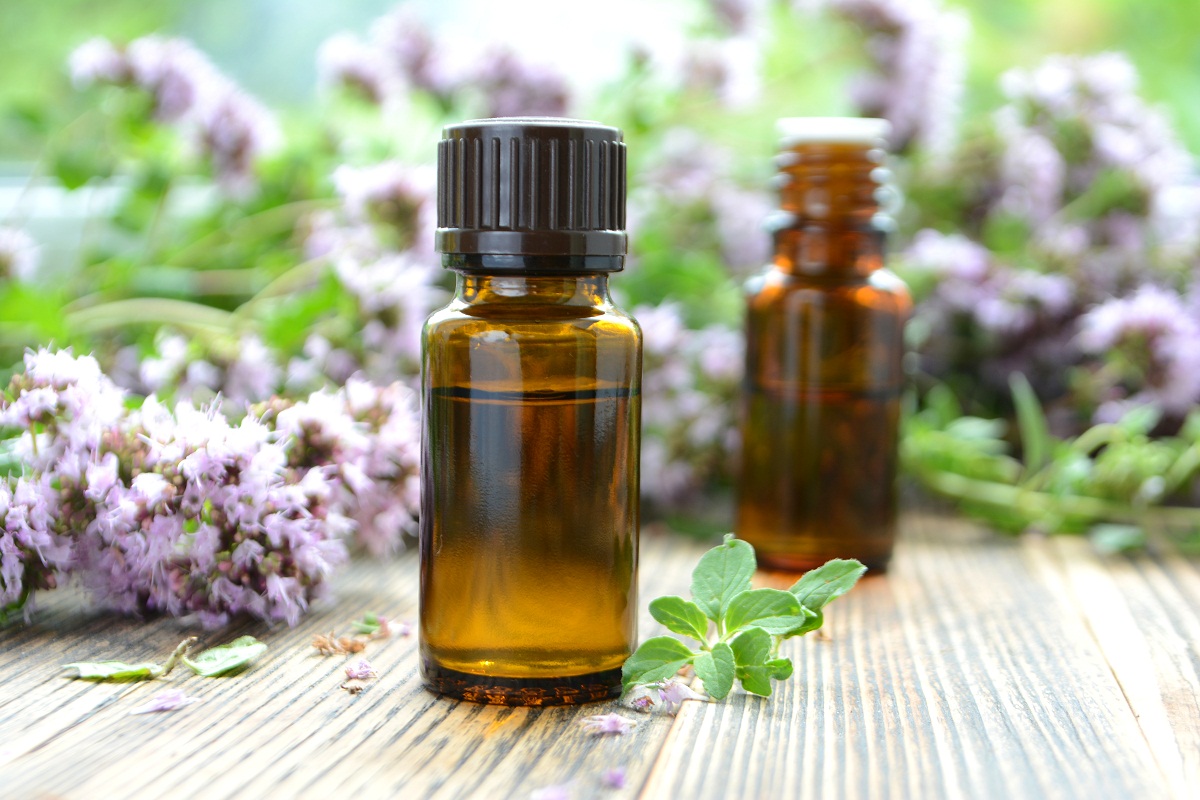

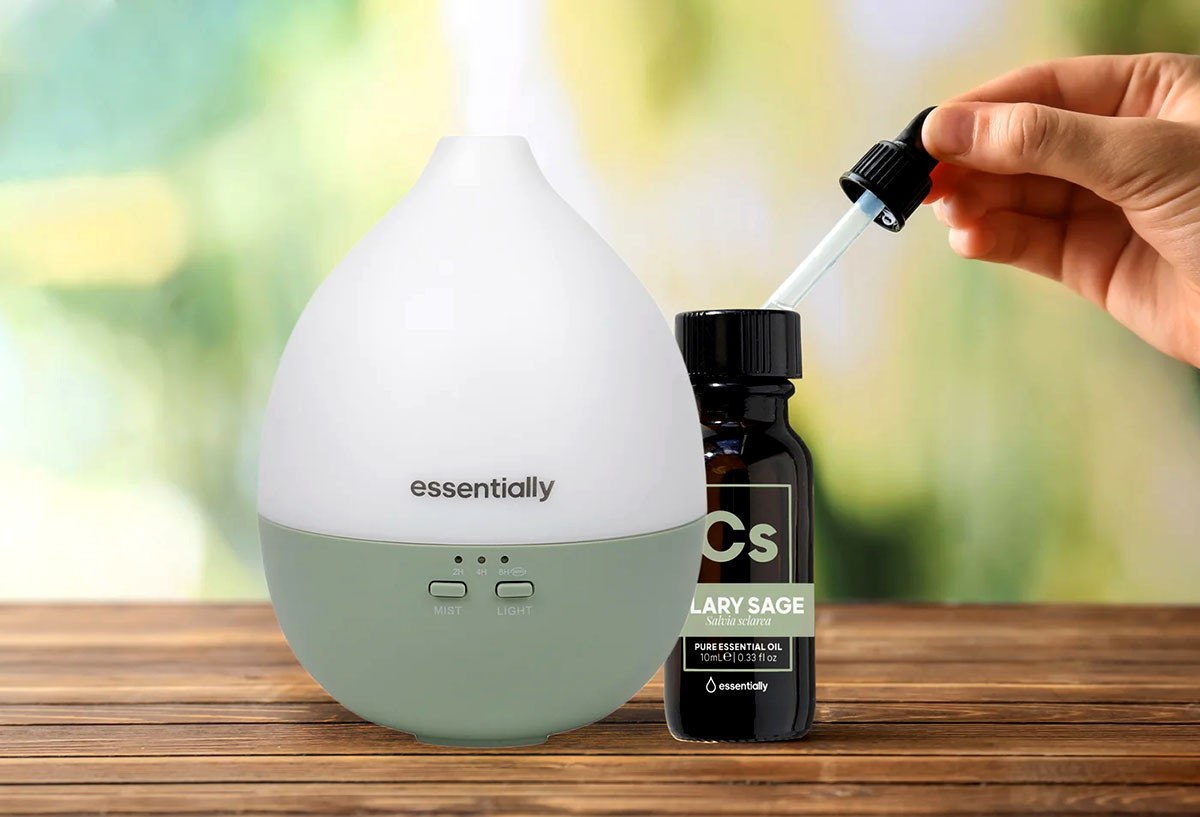
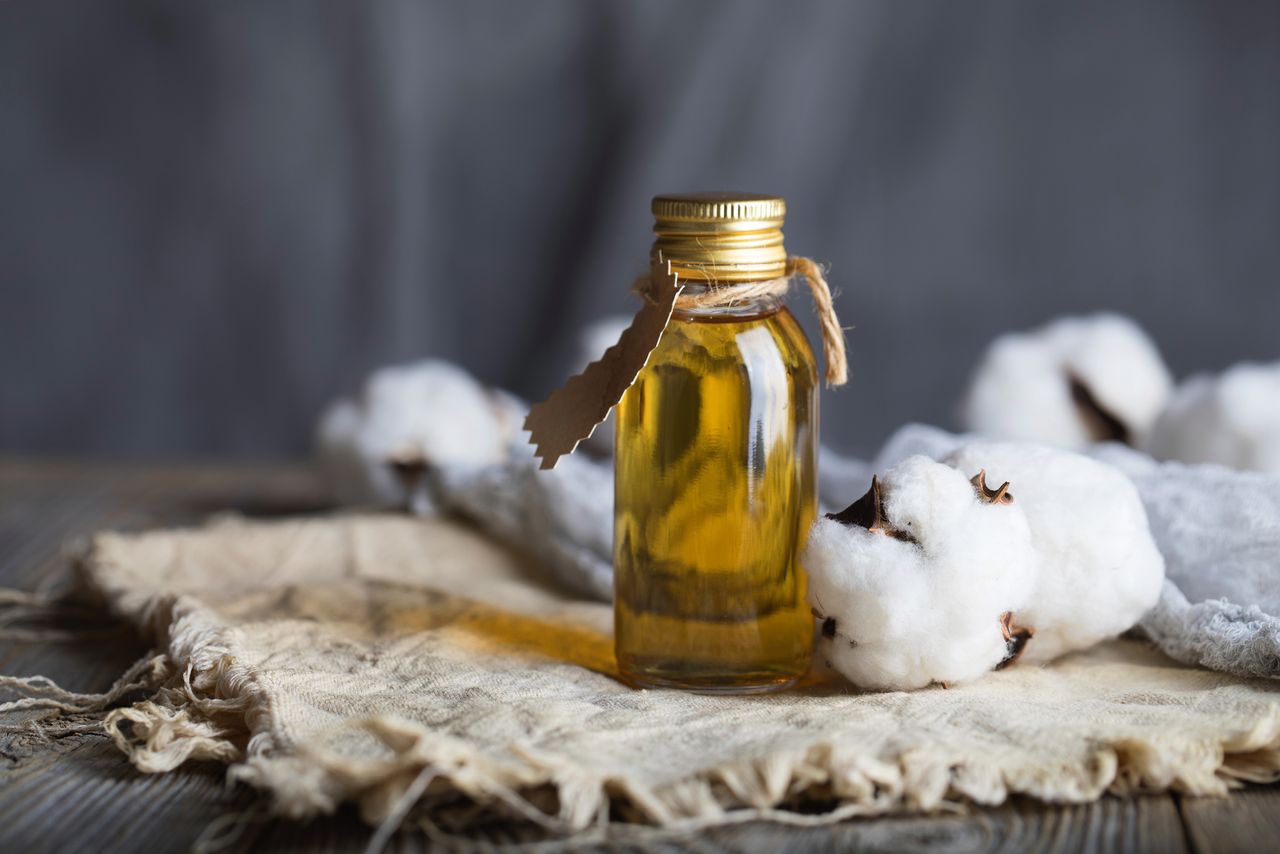

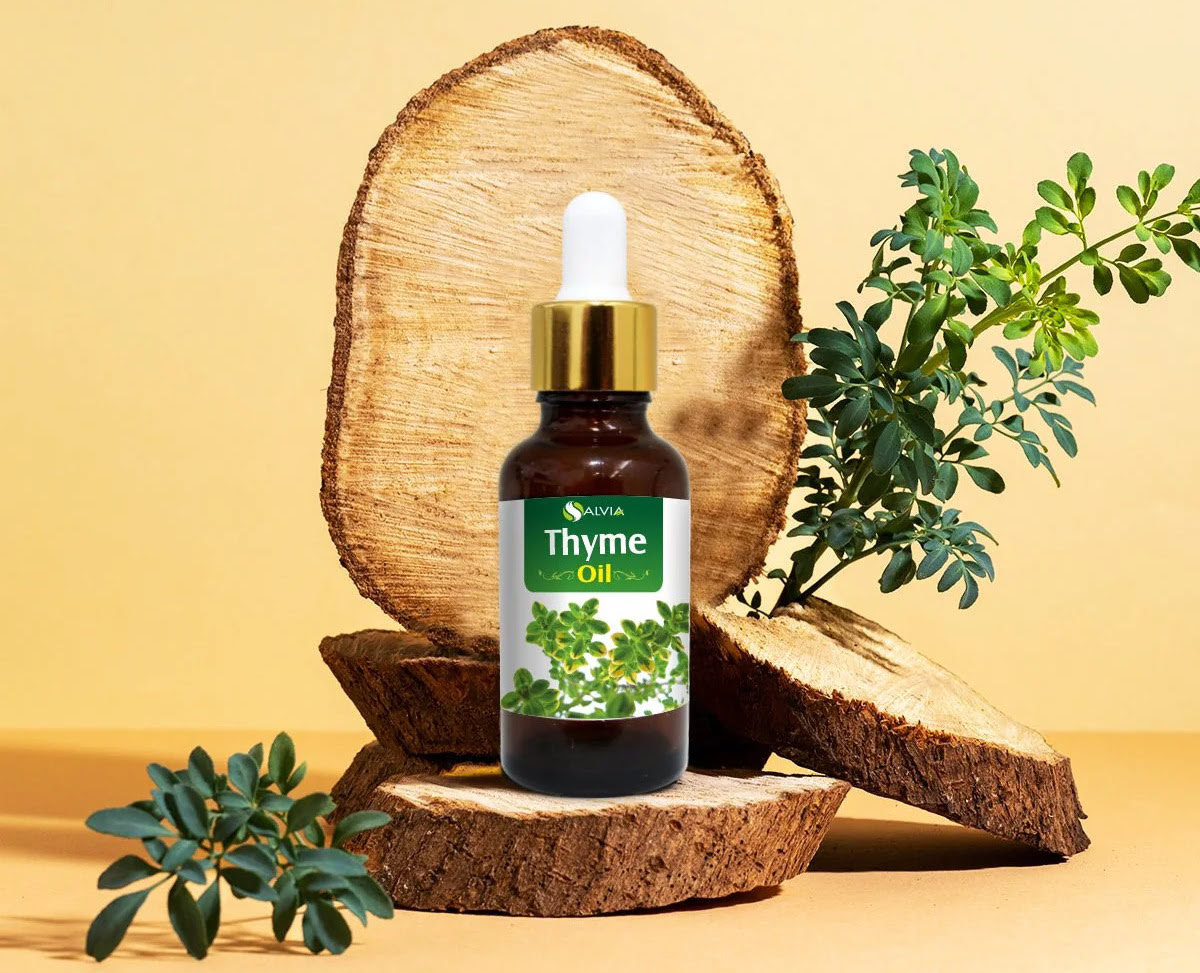



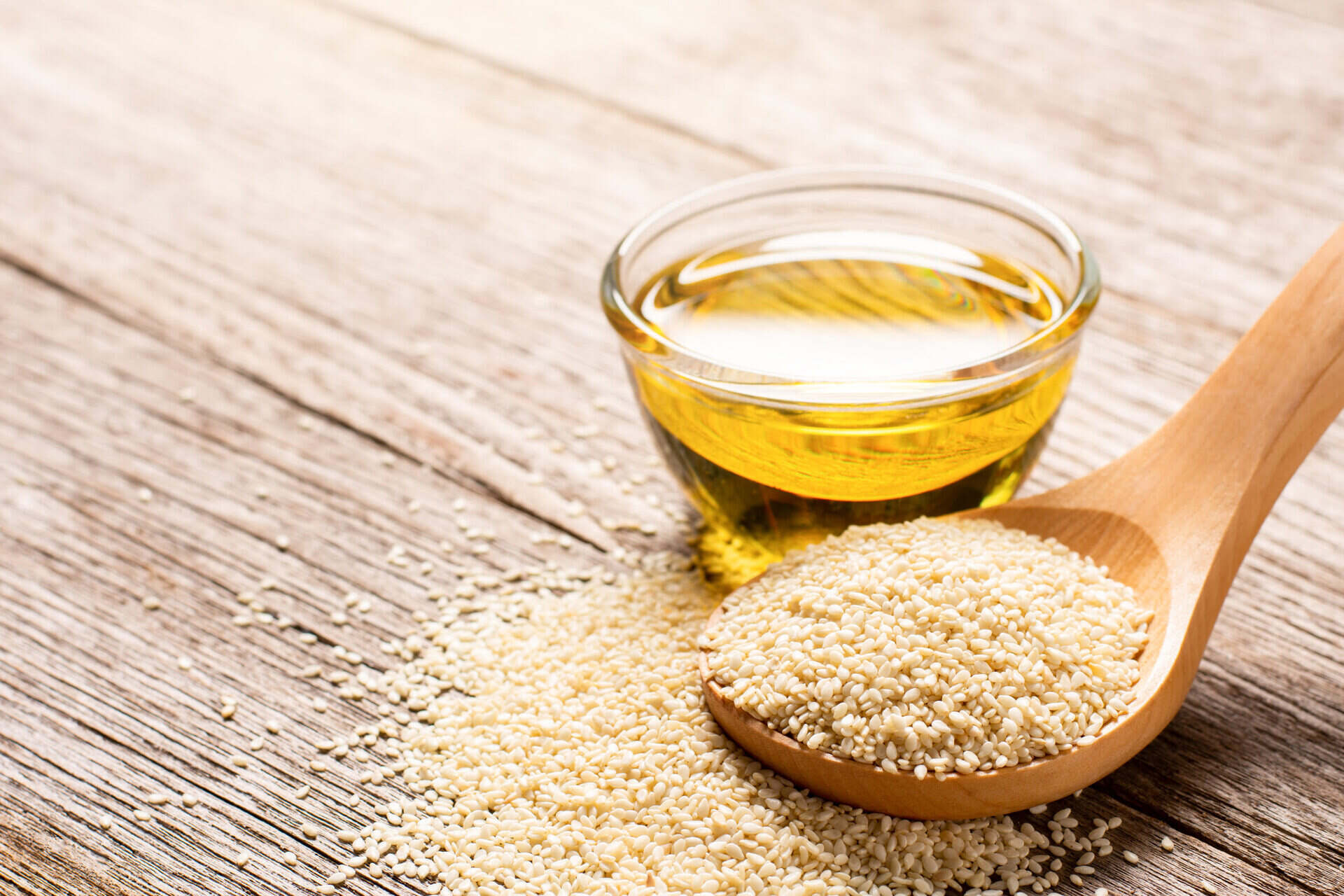

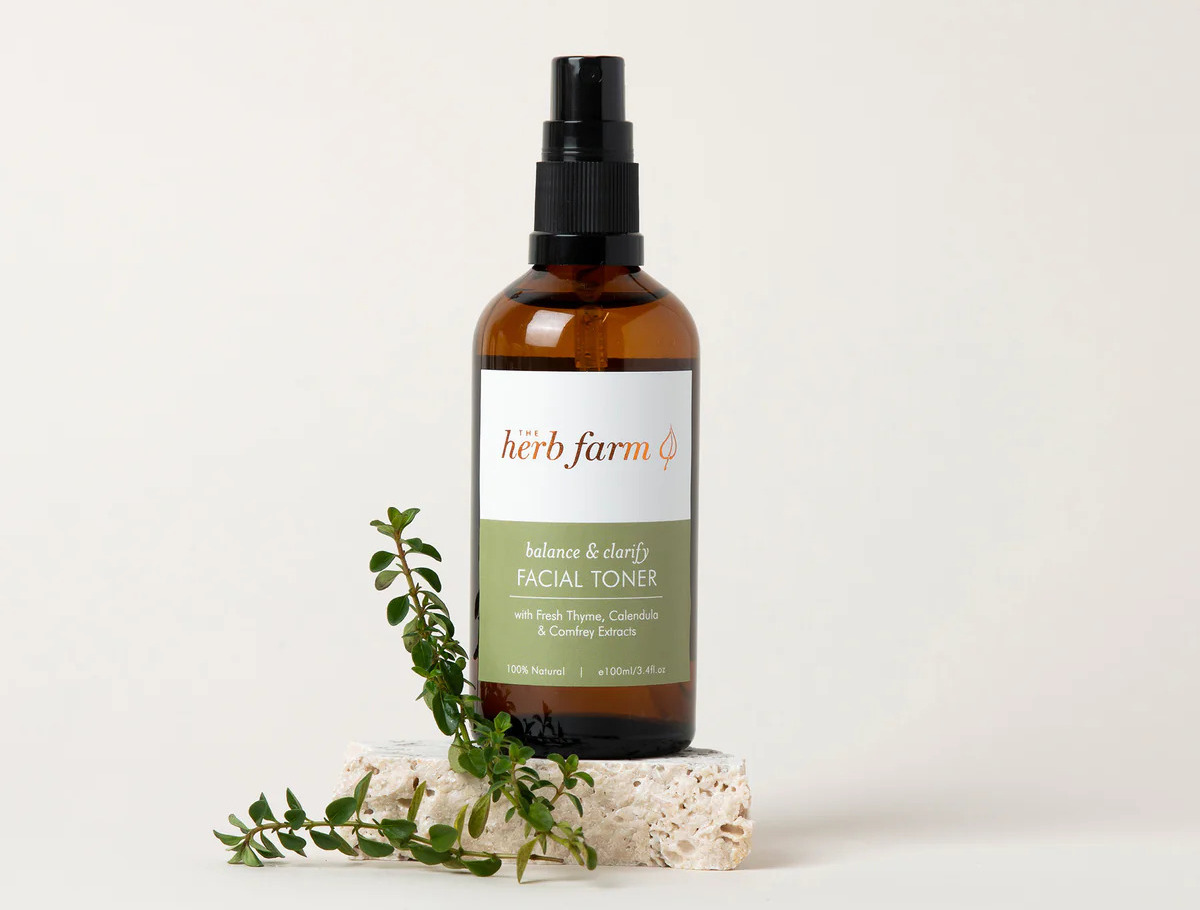

0 thoughts on “What Is White Thyme Oil Used For”